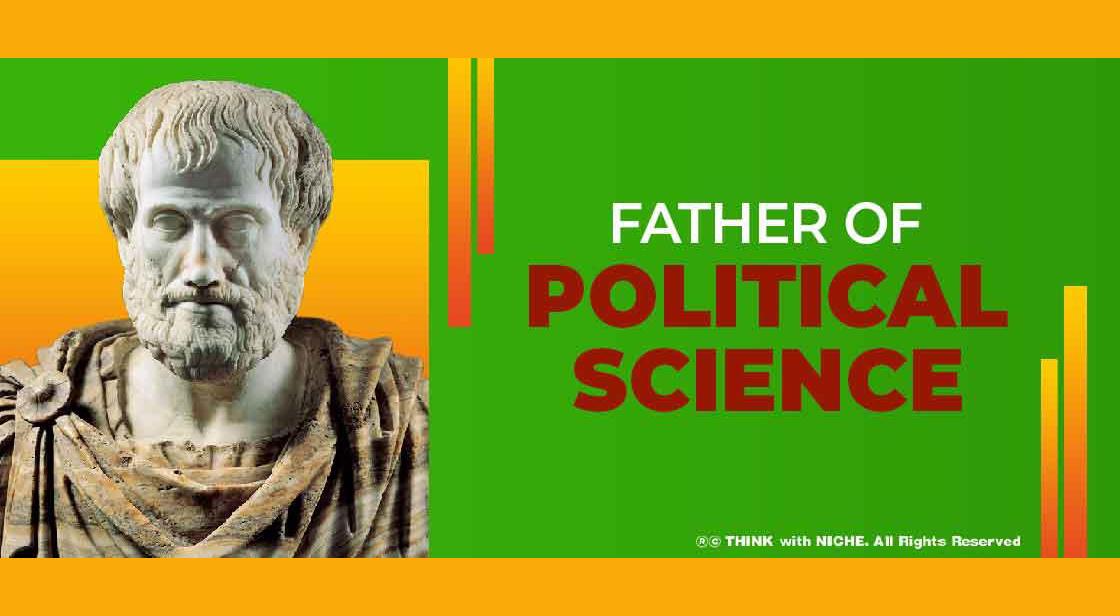Father of Political Science

Blog Post
Today, we have brought a piece of history to tickle your nostalgia worm in your brain. The History of Political Science. The Father of Political Science. Yes, we’ll discuss these topics in this blog. So put on your reading goggles, grab a cup of coffee and relish this walk through ancient history. #TWN
Who is the father of political science?
Aristotle was a Greek philosopher who created the field of Political Science. He was born in 384 BC and died in 322 BC. He was a pupil of Plato and a teacher to Alexander the Great. Aristotle's writings cover many subjects, including physics, metaphysics, poetry, theater, music, logic, rhetoric, linguistics, and politics.
What is Political Science?
Political science or a politicology, is the scientific study of politics. It entails understanding political ideas, ideologies, institutions, policies, processes, and behavior, as well as groups, classes, a government, diplomacy, a law, a strategy, and a war. The research, communication, and data analysis skills acquired in the study of political science also have wide applications in both the private and public sectors.
Related: Momentum Is Putting Dach Tech Companies On The Map
Introduction to Father of Political Science: Aristotle's Philosophy
Aristotle is known as the Father of Political Science. He was tutored by Plato on the Isle of Lesbos. His work is not limited to just his book on politics, which is called "The Politics." It also includes works on ethics, metaphysics, biology, zoology, logic, rhetoric, and poetry.
Life of Aristotle: Father of Political Science
Aristotle was born in Stagira, now part of Macedonia or Greece. His father was a physician to the royal court of Macedonia. His mother was a woman of high birth, and she would have been educated by philosophers. He is said to have studied with Plato for nine years, but he also studied under other great minds, including Anaxagoras, Xenocrates, and Crantor.
Education in Athens
The study of politics and political science has ancient roots. The term "political science" is derived from the ancient Greek word "polis," which means city-state. In ancient Athens, education was provided by Aristotle and other members of his school.
Views on Slavery
In his essay The Negro Race, written in 1851, he wrote that "unless the civil and political rights of the negroes are speedily recognized, and a fair chance given them to develop their manhood. It is yet too probable that our country will have to suffer from an agony which may shake its very foundations."
Views on Revolution: Views on Democracy and Tyranny
It is generally agreed by historians and philosophers that ancient Athens and ancient Rome were the two finest examples of an ideal republic. In both cases, however, the demos eventually revolted from the aristocracy. The reason for this was that they had gradually acquired too much power, as a result of which they became arrogant and oppressive.
Also Read: A walk through Tragic History
Conclusion
Many of Aristotle's contemporaries believed that the earth was flat, but he rejected it. The Greek philosopher also noted that lunar eclipses occur when the earth reaches the center of the sun and the moon. Aristotle noted that the shape of the earth's circumference was a circle or sphere. If the earth were flat, its shadow would be very different. Next, Aristotle considered the position of the North Star. Northward, the star appeared to be moving closer to the sky. However, if anyone were to go south of what we now call the equator, the North Star could not be seen at all. Finally, Aristotle watched the ships go into port. He noticed that in the distance, he could see the tops of their sails before he could see the entire ship. Aristotle reasoned that the crescent of the earth was not the same as the shape of the earth. If we were to live on a flat earth, Aristotle's conclusion would be perfect.
FAQs
What can you do with a political science degree?
Jobs for Political Science Graduates:
- Lobbyist
- Lawyer
- Diplomat or foreign service officer
- Political scientist
- Professor
- Business executive
- Political consultant
- Government official
What are the 4 types of political science?
American Politics, Comparative Politics, International Relations, and Political Theory are the four major subfields covered in Political Science.
What is an example of political science?
A study of government processes (the classic example is "how a bill becomes a law"), a study of government institutions (e.g., the presidency, Congress, etc.), and a study of the behavior of government officials are all examples (both elected officials and government workers).
You May Like
EDITOR’S CHOICE












